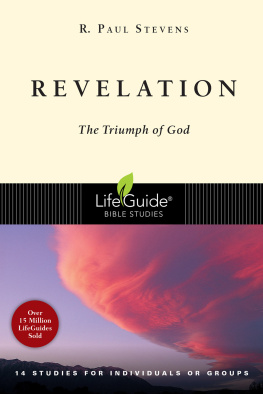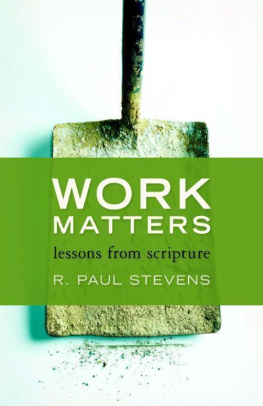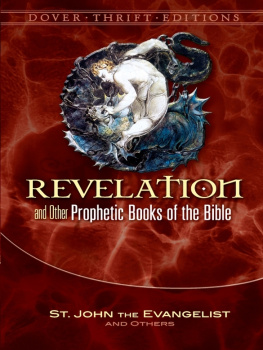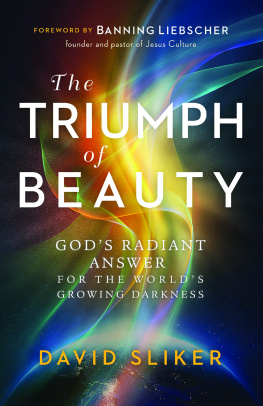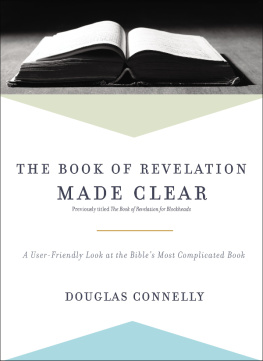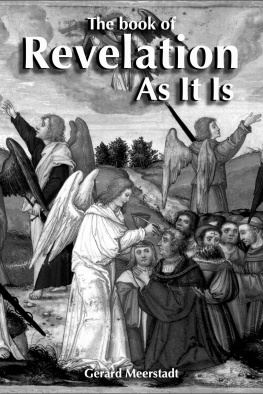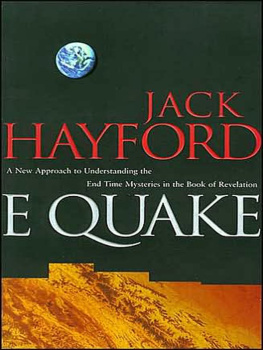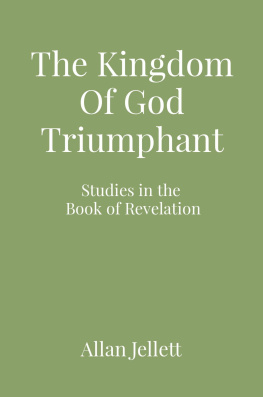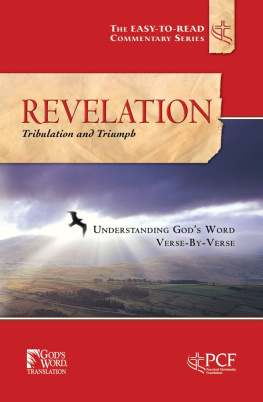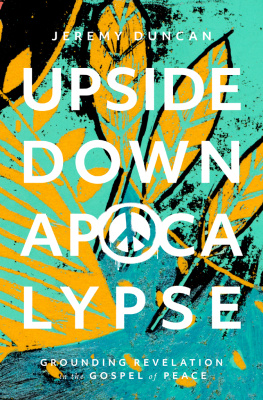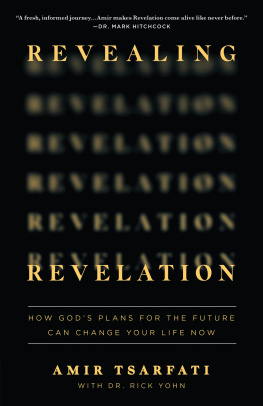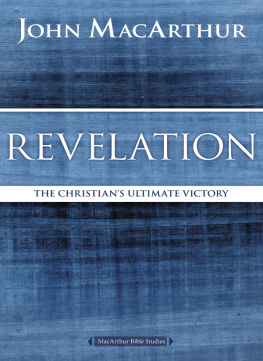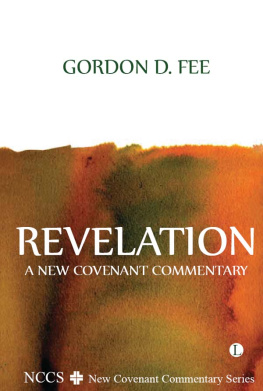The human spirit is like a little child on a long journey asking, Are we almost there? Yet today many of us have stopped thinking about the future. Fear of nuclear or environmental holocaust drives us to squeeze what we can from the present. We become obsessed with momentary gratification. This erodes our capacity to plan and build for the future if there is oneand paralyzes us from living faithfully in the present.
Unlike people today, New Testament Christians eagerly awaited and longed for the future. They believed the complete reign of Christ on earth was a more certain reality than the seeming victory of evil. Jesus gave John the strangely beautiful vision recorded in the book of Revelation to give us hope. Of the three Christian virtuesfaith, hope and lovethe one most needing attention today is hope. Revelation touches us at the point of our despair, our world-weariness, our future shock, our fear of persecution, our collaboration with a sick (though friendly) society. It is quite possibly the most relevant book of the Bible for this moment in history.
But how are we to understand this highly symbolic book? Since Revelation was meant to be read at one sitting (1:3), we do well to put aside the charts, sermons and films we have seen that claim to unravel its mysteries. It is better just to read it. A child might understand Revelation better than adults who approach it with preconceived systems. If a child were to hear this as a story and were to conclude, Im so glad the Lamb won over the awful beast, he or she would have truly heard it and taken to heart what is written in it (1:3). This book is written for those with eyes to see and, as C.B. Caird says, For a generation whose mental eye has been starved of imagery it is in some ways the most important book in the New Testament (The Revelation of St. John the Divine [New York: Harper & Row, 1966], p. 13).
Two Common Misconceptions
Many people misunderstand the book because of two commonly held misconceptions. First, Revelation is not difficult to understand. Though it is highly symbolic, it is not a lock whose key has been lost. The major reason we have difficulty decoding the symbolism of this book is that, unlike the first readers, we are largely illiterate when it comes to the Bible.
The Old Testament provides the most important clues for decoding Revelation. Of the 404 verses in Revelation, 278 allude to the Old Testament (though not one direct citation is actually quoted). The book is a biblical implosion. Old Testament ideas, symbols, names and themes have been powerfully pulled together through the inspiration of the Spirit to form a collage, a kaleidoscope effect in the message John brings.
For example, phrases like God will wipe away every tear from their eyes (7:17) is a creative adaption of Isaiah 25:8. Proper names like Balaam, Jerusalem and Sodom and concepts like the tree of life are adapted from Johns Bible. Numbers like twenty-four months are used symbolically, as they are in the Old Testament (Dan 9:27). This book above all others in the New Testament must be interpreted by Scripture.
Second, we misunderstand Revelation when we treat it as a book of predictions. It is not so much a prediction of future events as it is an expos of spiritual realities that affect us now and will bring the events of history to a worthy end. John shows us how the world looks to someone in the Spirit.
John wrote Revelation between A.D. 90 and 95 from his place of exile on Patmos Island. Tradition tells us that prior to his exile John left Israel to live in Ephesus, capital of the Roman province of Asia. The seven churches to whom this book is addressed were visited by a courier traveling on the circular road through modern Turkey. His letter described Johns vision of Christ as Lord of the churches (1:12-3:22), as the Lamb on the throne (5:1-14), as the liberating Word of God (19:11-16) and as the Leader in the new creation (2122). This book is truly the Revelation of Jesus Christ (1:1).
John says, Blessed is the one who reads the words of this prophecy, and blessed are those who hear it (1:3). Look forward to this blessing as you study Revelation.
Suggestions for Individual Study
As you begin each study, pray that God will speak to you through his Word.
Read the introduction to the study and respond to the personal reflection question or exercise. This is designed to help you focus on God and on the theme of the study.
Each study deals with a particular passageso that you can delve into the authors meaning in that context. Read and reread the passage to be studied. If you are studying a book, it will be helpful to read through the entire book prior to the first study. The questions are written using the language of the New International Version, so you may wish to use that version of the Bible. The New Revised Standard Version is also recommended.
This is an inductive Bible study, designed to help you discover for yourself what Scripture is saying. The study includes three types of questions. Observation questions ask about the basic facts: who, what when, where and how. Interpretation questions delve into the meaning of the passage. Application questions help you discover the implications of the text for growing in Christ. These three keys unlock the treasures of Scripture.
Write your answers to the questions in the spaces provided or in a personal journal. Writing can bring clarity and deeper understanding of yourself and of Gods Word.
It might be good to have a Bible dictionary handy. Use it to look up any unfamiliar words, names or places.
Use the prayer suggestion to guide you in thanking God for what you have learned and to pray about the applications that have come to mind.
You may want to go on to the suggestion under Now or Later, or you may want to use that idea for your next study.
Suggestions for Members of a Group Study
Come to the study prepared. Follow the suggestions for individual study mentioned above. You will find that careful preparation will greatly enrich your time spent in group discussion.

